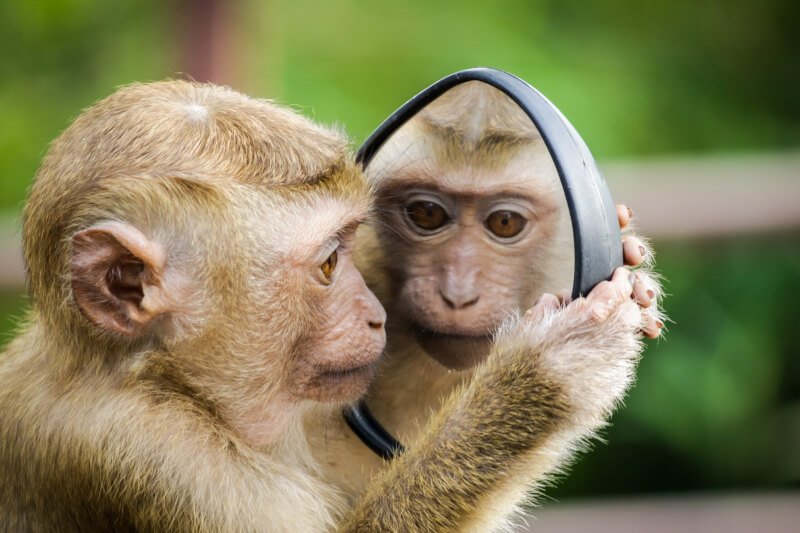In the fascinating world of primates, loss and grief are emotions that they, too, experience. Just like humans, these intelligent creatures form close bonds with their family members and feel profound sadness when faced with the death of a loved one. As caretakers, it is our responsibility to understand and address these emotions in order to support primates in their healing process. By observing their behavior and providing them with a nurturing environment, we can help primates cope with loss and grief, enabling them to continue living fulfilling lives within their social groups.

Understanding Primates’ Loss and Grief
Primates, which include humans as well as non-human primates such as monkeys and apes, are highly social creatures with complex emotions. Just like humans, they can experience loss and grief. This article will explore the emotions and social structure of primates, the causes and effects of loss and grief on them, their responses and coping mechanisms, and how we can promote their emotional well-being both in the wild and in captivity.
Primate Emotions and Social Structure
Primates have a wide range of emotions, including joy, fear, anger, and sadness. They form intricate social structures within their groups, which are essential for their survival and well-being. These social structures help them establish strong bonds with other individuals, and losing a member of their group can have profound effects on their emotional state.
Recognizing Loss and Grief in Primates
Loss and grief can manifest in various ways in primates, and it is important for us to understand and recognize these emotions in order to provide appropriate support. Primates may exhibit behavioral changes and psychological impacts when they experience loss, which we will explore in the upcoming sections.
Causes of Loss in Primates
Loss in primates can occur due to natural causes or as a result of human activities. Understanding the causes of loss is crucial for addressing and minimizing the negative impact on primates.
Natural Causes of Loss
In the wild, primates can experience loss due to natural events such as predation, disease, or accidents. Losing a group member to these natural causes can have significant consequences for the remaining individuals, who may feel sadness and mourn the loss just like humans do.
Human-Induced Loss
Unfortunately, human activities can also lead to loss for primates. Habitat destruction, hunting, and the illegal wildlife trade are major contributors to primate population decline. These activities not only result in the loss of individual primates but also disrupt social groups and cause immense grief within primate communities.

Effects of Loss and Grief on Primates
Loss and grief can have profound effects on primates, both in terms of their behavior and their psychological well-being.
Behavioral Changes
When primates experience loss, their behavior can change significantly. They may become withdrawn, exhibit signs of depression, or engage in self-destructive behaviors. Loss can disrupt the social dynamics within a group, leading to conflicts and changes in hierarchy. It is not uncommon for primates to experience a decline in their overall well-being and even their physical health as a result of a loss.
Psychological Impact
The psychological impact of loss on primates is extensive. They can experience grief, anxiety, and even post-traumatic stress disorder. The bonds that primates form with one another are deep and meaningful, and losing a companion can lead to long-lasting emotional trauma. Primates may exhibit symptoms similar to human grief, such as loss of appetite, sleep disturbances, and a decreased interest in activities they once enjoyed.
Primate Responses to Loss
Primates have complex reactions to loss, and their responses can vary depending on the individual and the circumstances surrounding the loss.
Grief Reactions
Just like humans, primates can go through a grieving process when they lose a group member. They may engage in mourning behaviors such as vocalizations, touching and caressing the deceased, or even carrying the body for extended periods of time. Grief reactions can last for weeks or even months, highlighting the depth of their emotional capacity.
Social Support Networks
Primates rely heavily on the support of their social networks during times of loss. Other group members can provide comfort and solace through physical contact, grooming, and vocalizations. The presence of a supportive community can significantly alleviate the grief experienced by an individual.

Primate Coping Mechanisms
Primates have developed various coping mechanisms to help them navigate through the difficult emotions associated with loss.
Reestablishing Connections
After experiencing loss, primates may actively work to reestablish connections and rebuild their social networks. This can involve forming new alliances, strengthening existing bonds, and seeking out companionship and social interactions. By forging new connections, they find comfort and companionship, aiding in their recovery process.
Seeking Comfort and Solace
Primates often seek comfort and solace from others within their group. Physical contact, such as grooming and hugging, provides a sense of security and support. Engaging in activities that bring joy and pleasure, such as play or engaging in familiar routines, can also act as a coping mechanism.
Promoting Emotional Well-being in Primates
To ensure the emotional well-being of primates, it is essential to provide them with the necessary support and care in both the wild and in captivity.
Providing Adequate Socialization
In captivity, it is vital to ensure that primates have ample opportunities for social interactions with others of their species. This can be achieved by creating large, naturalistic enclosures that allow for socializing and forming bonds. Expert caretakers should also facilitate socialization opportunities and monitor the dynamics within the group to ensure a healthy and supportive environment.
Enrichment Activities
Engaging primates in enrichment activities is crucial for their emotional well-being. These activities can include providing toys, puzzles, and foraging opportunities that simulate their natural environment. Enrichment not only helps distract primates from their grief but also provides mental stimulation and promotes their overall happiness and resilience.

Recognizing and Addressing Signs of Grief
It is important for caretakers and researchers to be able to recognize the signs of grief in primates to provide appropriate support.
Physical Signs
Physical signs of grief in primates may include changes in appetite, weight loss, loss of fur, or a decrease in activity level. Caretakers should regularly monitor the physical health of primates and seek veterinary care if necessary.
Behavioral Indicators
Behavioral indicators of grief can manifest as changes in social interactions, withdrawal from group activities, or a decrease in engaging in normal behaviors. Observing and documenting these behavioral changes can help caretakers determine the appropriate interventions to support grieving primates.
Supporting Primates in the Wild
Efforts to support primates in the wild are crucial for their continued conservation and well-being.
Conservation Efforts
Conservation organizations play a vital role in protecting primate populations and their habitats. By working to preserve natural habitats, reducing human impact, and combating illegal activities such as hunting and the wildlife trade, these organizations help minimize the loss experienced by primates.
Education and Research
Educating the public about the importance of primate conservation and the emotional lives of primates is crucial. Research into primate behavior, social structure, and emotional well-being further enhances our understanding and guides conservation efforts.

Helping Primates in Captivity
Primates living in captivity also require specific support to cope with loss and grief.
Creating Optimal Living Environments
Providing primates with appropriate living conditions is essential to their emotional well-being. Enclosures should be designed to promote social interactions, mental stimulation, and physical exercise. Environmental enrichment should be tailored to the individual needs of each primate, ensuring a supportive environment that helps them cope with loss.
Implementing Behavioral Training Programs
Behavioral training programs can help primates in captivity by providing mental stimulation, promoting positive interactions with caretakers, and enabling healthy coping mechanisms. These programs can include activities such as target training, puzzle-solving, and the use of positive reinforcement.
Conclusion
Understanding the intricacies of loss and grief in primates is crucial for providing them with the support they need. By recognizing the emotional lives of primates, addressing the causes and effects of loss, and implementing appropriate interventions, we can promote their emotional well-being and contribute to their overall care and conservation. By supporting primates in both the wild and in captivity, we can ensure a better understanding and better care for these remarkable creatures.


